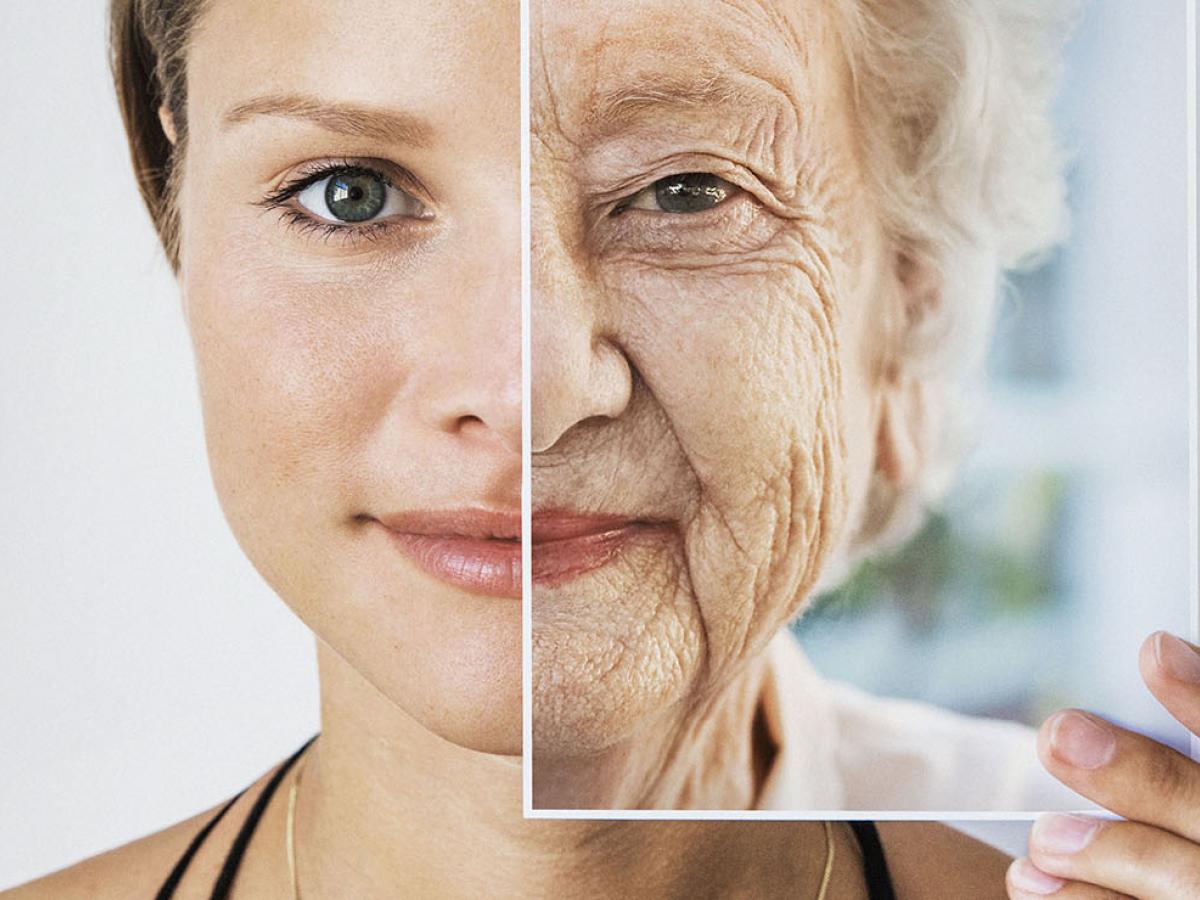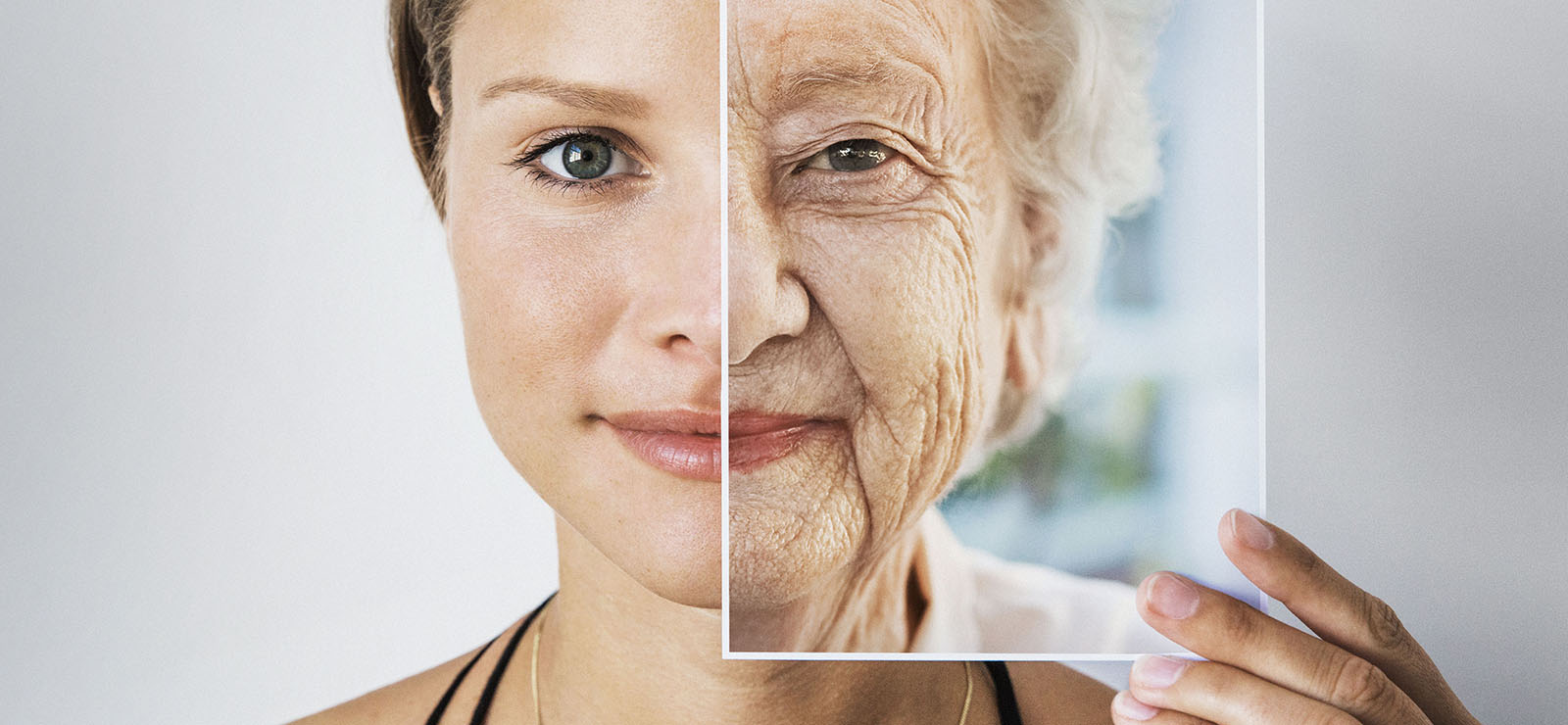August 03, 2020

It happens to all of us: A random backache, a wrinkle, a new slang phrase you have no idea the meaning of — something that leads us to question, “when did I start to get so old?” As a mother of teenagers, I of course have had my own experiences, but as a family medicine doctor, I often help patients navigate the part that comes after: The “how do I make it stop?” phase.
Sun Exposure
Now, don’t get me wrong. Daily sunlight can have quite a few advantages for our mental and physical health, but we don’t need that much sun to experience the benefits — ten minutes is plenty enough to get our recommended vitamin D. Anything beyond, without proper sun protection, starts to put our skin at risk for cancer and premature aging.
Aging Effects: Paper-Thin Skin, Sagging Skin, Dark Spots
One of the biggest misconceptions I hear is sun exposure just makes your skin thick and leathery, when in fact, the opposite can be just as true. Too much sun exposure can break down our skin’s elasticity causing it to be thick like leather or thin like tissue paper. Not only that, UV rays can damage collagen proteins in the skin, leading to sagging or loose skin, and speed up the production of melanin (cells that give the skin its color) causing dark age spots.
How to Prevent It
Sunscreen. I know, that’s not the most exciting answer, especially with a multibillion-dollar skin care industry, but sunscreen and other forms of sun protection are the best way to prevent sun damage and premature aging. I’ve found the easiest way to make sure I’m protecting my skin is to build it into my morning routine. There are a lot of creams and makeup products available with a sun protection factor (SPF) or 35 or more that can make it an easy integration. There’s even clothing with SPF ratings as well. Just remember to protect your hands — they’re easy to forget but can be one of the first spots to age.
Smoking
The health reasons alone should be enough to avoid smoking — after all, it’s considered the number one cause of preventable disease, disability and death according to the World Health Organization — but in terms of premature aging, smoking is definitely not one to preserve our youth.
Aging Effects: Wrinkled Skin, Sagging Skin, Yellowed or Grayed Skin, Undereye Bags, Stained Teeth, Thinning Hair
Not only does smoking break down our skin’s elasticity and strength, it can shrink the size of our blood vessels and limit the oxygen our skin receives, leading to wrinkled, sagging skin. We don’t often consider DNA in our hair follicles to be a living thing, but toxic chemicals found in cigarettes can actually damage that DNA and cause hair to thin, turn gray or fall out altogether. And nicotine, the most popular chemical associated with tobacco, is the reason for stained teeth and skin, leading to that aged yellow look.
How to Prevent It
Don’t smoke. I know for some, that’s easier said than done, but there are plenty of resources out there designed to help people break the habit, including MU Health Care’s free tobacco cessation program. Try to find one, or multiple, that can fit your needs and offer support.
Exposure to Loud Noise
Long-lasting exposure to loud noises isn’t usually one that’s on my patients’ radar until they start to experience its adverse effects on their hearing. When I say loud noises, I’m not just talking about rock concerts and industrial machinery, which are usually the first things people think of; I’m talking about boats, lawn mowers, movie theaters and even vacuuming.
Aging Effects: Hearing Loss
Exposure to loud noise can damage the little hair cells in our ears that carry sound to our brain. Once those hairs are broken, they can’t regrow, and the less hairs we have, the worse our hearing.
How to Prevent It
Be sure to wear earplugs or other protective gear when dealing with any long-lasting volumes that are louder than a normal conversation. When listening to music with headphones, do a quick test beforehand to see if the volume is too loud. While the music is playing, hold your headphones as far away from your ears as possible. If you can still hear the music, it’s too loud.
Stress
Stress has a fascinating way of impacting our bodies, whether it’s the more obvious physical stress or the subtler emotional stress. In terms of short-term effects, stress can boost our energy and focus. Think about the last time you had a quick deadline to meet — did the adrenaline kick in to get it done? While stressful, a moment of stress here and there isn’t problematic. It’s the chronic, long-term stress that can wear our bodies down and lead to premature aging.
Aging Effects: Memory Loss, High Blood Pressure, Aged Immune System
Research has found the hormones produced with chronic stress can age our brain and immune systems. Those who are constantly stressed have higher instances of dementia and memory loss, as well as more damaged cells within their immune systems. Stress also lends itself to high blood pressure, making you more susceptible to heart disease and other conditions typically found in older populations.
How to Prevent It
Managing stress is all about mindfulness. Try to regularly quiet your mind with activities like yoga or meditation. If you’re feeling overwhelmed with the to-do list, reach out for help and delegate the tasks you can give up. Another way to reduce stress is by looking for positivity in every situation — make a list of three things you’re thankful for or give a silver lining for every negative thought you have. Getting outside, exercising and being social with friends are also great ways to reduce stress.
Next Steps and Useful Resources
- Meet Mona Brownfield, MD, Family Medicine Provider
- Need help kicking the habit? Ellis Fischel Cancer Center now offers virtual tobacco-free classes.



